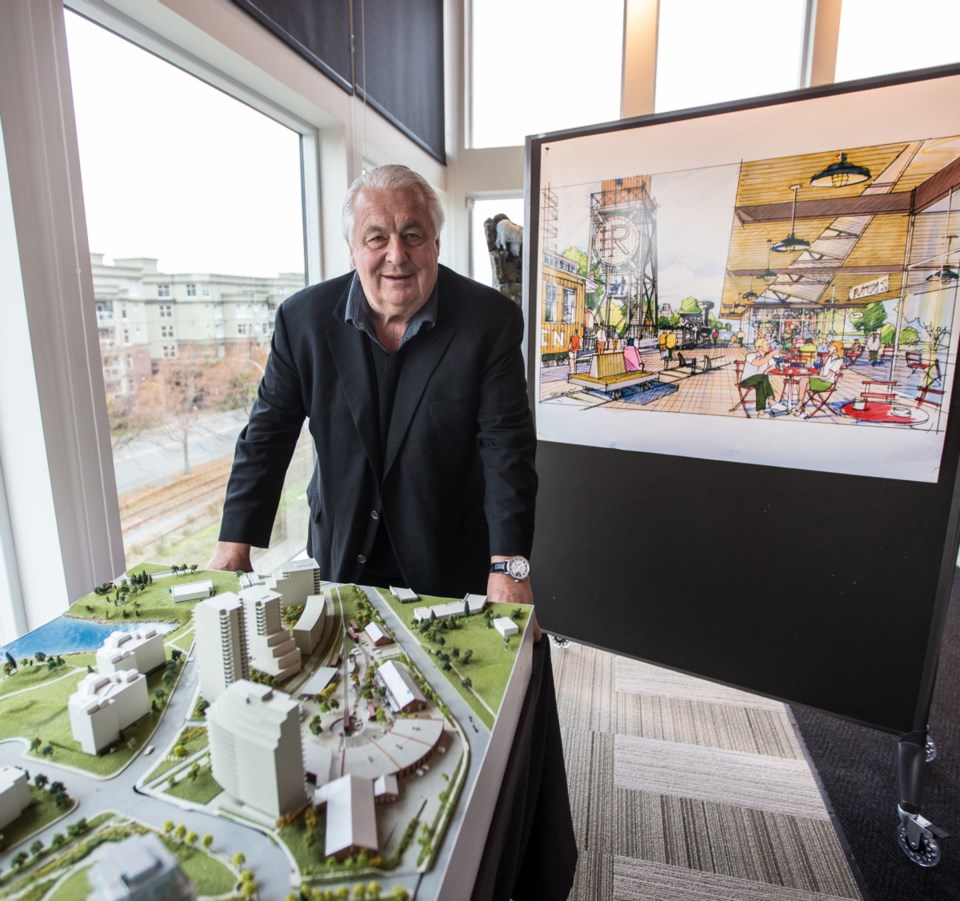Our world is facing an “urban tsunami” as population grows and people flock to cities, says former B.C. premier Mike Harcourt.
Another 2.5 billion people are expected to be living on the planet in the next 30 years. It’s 7.5 billion today, “most of whom have flooded into the cities in the last 40 to 50 years,” Harcourt said. “It’s a huge reality, particularly in developing countries.”
Harcourt is one of the speakers at the sixth annual Kenneth W. and Patricia Mariash Global Issues Dialogue, being held in Victoria on Tuesday. The impact of new provincial housing taxes, property zoning, cost of regulations, and urban growth are on the agenda.
The growth of urban centres will lead to a massive economic opportunity to create sustainable cities, with prosperous economies, clear air and clean water, and social equity and social justice, Harcourt said. These cities can have cultures that welcome diversity, creativity and innovation.
The challenge is how to do all that as well as find the $350 trillion that will be needed to develop such cities.
Models for density
Looking at B.C. today, Harcourt said communities can re-energize their inner cities, pointing to Dockside Green and Bayview Place in Victoria and Vancouver’s West End, Coal Harbour and False Creek.
He favours turning away from sprawl and low-density, creating denser areas with their own commercial centres, such as in Surrey, with neighbourhoods linked by light rail.
Former Saskatchewan premier Brad Wall and Victoria Mayor Lisa Help are also speaking. A discussion panel includes Kenneth Mariash, owner of Focus Equities and developer of Bayview Place, Jon Stovell, president of Reliance Properties, and Peter Fassbender, a former Langley mayor who served as B.C.’s community minister.
It is critical to discuss housing issues, Mariash said. Zoning approvals and permit approvals for large and small projects in Victoria and Vancouver were starting to catch up to demand, providing an adequate supply of houses to reduce prices.
But now, “the speculation tax is shutting down sales and presales and stalling the market,” he said. “Projects are being forced to wait or stop because of the taxes, eliminating the possibility of achieving adequate supply as a sustainable solution.”
The speculation tax is poorly thought out, does not deal with speculators, does not improve afforability, and does not increase the supply of houses, Mariash said.
Slowdown in construction
Fassbender is also against B.C.’s planned speculation tax, agreeing that it is putting a chill on construction. “Developers have put projects on hold. Financing institutions are thinking that their financing might be at risk so they are pulling back.” The provincial government maintains that the tax would only affect a small number of wealthy people. But, “I don’t believe that the public really understands the impact this is going to have on the entire housing market, on the construction industry, on everyday jobs,” he said.
The speculation tax is aimed at people who have primary residences elsewhere and leave a home empty for a large chunk of time. On Vancouver Island it will apply to Greater Victoria, Nanaimo and Lantzville.
Fassbender said another element affecting affordability and housing supply is at the local government level, where development applications need to be streamlined. Developers contribute to our community through construction jobs and related services, he said. “The ripple of a slowdown in the construction industry in this province is huge.”
The 2018 Global Issues Dialogue, presented by the United Nations Association in Canada, will be at the Roundhouse at Bayview Place, 253 Esquimalt Rd., from 11 a.m. to 2 p.m. on Tuesday June 12. Tickets are $35. Go to unac.org.



